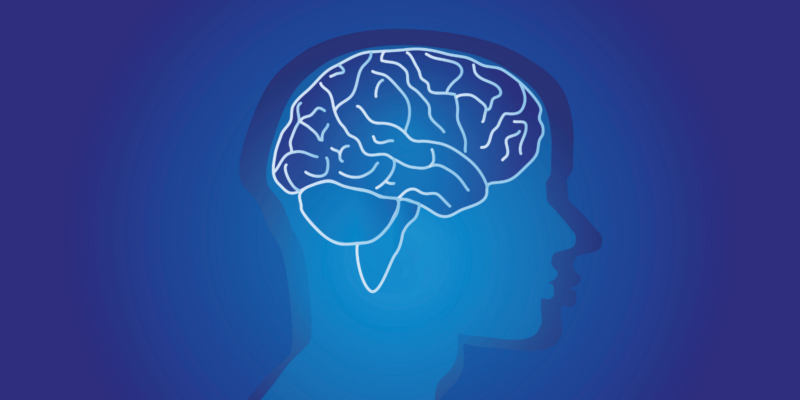(In this article I will address thyroid medications for hypothyroidsm only. Hyperthyroidism medications are not included here).
Before breakfast or at bedtime?
If you have been recommended supplemental thyroid hormones, you have probably been asked to take it first thing in the morning, on an empty stomach. Then wait for at least half an hour to one hour before enjoying that wonderful cup of tea or coffee. When do you have breakfast? (If you are still eating breakfast!) But you are in a rush to leave for work. You don’t have time! So what happens? You end up missing your medications!
In this article I will address the following:
- Should you take your thyroid medications before breakfast or at bedtime?
- Food, supplements and medicines that may interfere with the absorption of thyroid medication.
Taking Thyroid medications at bedtime versus taking it in the morning.
A study reported in JAMA Internal Medicine, ((Ref)) looked at thyroid hormone levels (along with other biomarkers) in people who took thyroid hormones in the morning and then switched them to taking thyroid hormones at bedtime.
What did they do: Patients were instructed to take one capsule of levothyroxine (LT4) in the morning 30 minutes before breakfast and one placebo (no thyroid hormones) capsule at bedtime. After 3 months they were asked to switch the capsules the other way. Both capsules looked identical.
What did they find: TSH levels decreased by an extra 1.25 mIU/L when they took levothyroxine at bedtime, compared to taking levothyroxine in the morning. The lower TSH was achieved at the same levothyroxine dosage. Free T4 and Total T3 showed similar benefits. However, there were no differences in symptoms between taking levothyroxine in the morning versus taking at bedtime. Thyroid function tests improved by simply switching to bedtime levothyroxine intake.
Why did they see these effects:
- Many of the participants took coffee in the morning. Coffee can interfere in the absorption of thyroid hormones. ((Ref))
- 30 minutes interval between levothyroxine and food or drink may not be enough for proper absorption.
- Gut motility is slower at night, provided you don’t eat close to bedtime. This may help in better absorption of levothyroxine because the medicine stays in contact with your gut for a longer time.
- Levothyroxine needs an acidic environment for better absorption. At night stomach acidity is higher than in the morning. This is also why acid-blocking medicines (PPI), like omeprazole, lansoprazole) may interfere with absorption. ((Ref))
Contradictory evidence:
The American Thyroid Association (ATA) guidelines ((Ref)) say
……………. if possible, levothyroxine be consistently taken either 60 minutes before breakfast or at bedtime (3 or more hours after the evening meal) for optimal, consistent absorption.
However, the ATA considers this as a weak recommendation based on the moderate quality of evidence.
Three different timing of taking LT4 equally effective.
A group of 84 patients who were on a stable dose of levothyroxine (LT4) were divided into 3 timing regimens, each lasting for 8 weeks. They looked at levels of TSH, FreeT4, Free T3 and lipid profile. This was a crossover randomized study, which means this study was of a higher quality.
- Regimen A- 30 minutes before breakfast.
- Regimen B-60 minutes before the main meal of the day.
- Regimen C-at bedtime (minimally 2 h after dinner).
What did they find: There were no statistical differences among the 3 regimens in terms of lipid profiles, TSH, FT4 or FT3. ((Ref))
Thyroxine with breakfast or in a fasted state?
A study looked at TSH levels in 42 people with hypothyroidism, over a period of 180 days. For 90 days they took LT4 with breakfast. This was followed by another 90 days during which they took LT4 in a fasted state (60 minutes before breakfast).
What did they find: The average TSH level when LT4 was taken with breakfast was 2.89 mIU/L, while it was 1.9 mIU/L while taking it in the fasted state. Though the level of TSH was higher when taking thyroid medications with breakfast, it was still within normal limits. (TSH levels >3.5 mIU/L was considered abnormal in this study).
The study concluded that taking thyroid hormones with breakfast may be a viable option in those who struggle with taking it in a fasted state. ((Ref))
Factors affecting thyroid absorption:
As you can see in the table below, there are many foods, supplements and prescription medications and gut-related diseases that affect the absorption of thyroid medications. ((Ref))
| Food | Soy Coffee Fibre-enriched diet Papaya Grapefruit juice |
| Supplements | Calcium Iron (Ferrous Sulphate) |
| Medicines | Proton-pump inhibitors like pantoprazole, lansoprazole. H2 receptor medications like famotidine Antacids (Sucralfate), aluminum-containing antacids. Cholestyramine Raloxifene Orlistat Anti-seizure medications like carbamazepine, phenytoin. Antidepressants like sertraline. Birth control pills Estrogen Testosterone |
| Diseases | Lactose intolerance Helicobacter Pylori infection Giardia Lamblia infection Celiac Disease |
What about combination therapy with T4 and T3?
Many people are dissatisfied with their treatment of hypothyroidism. The most commonly reported dissatisfaction is with symptoms of depression, anxiety and weight gain. In some of them, a trial of combination therapy with T4 and T3 (levothyroxine and liothyronine) is justified.
Does T3 need different dosing?
In a study, the authors looked at 24-hour thyroid hormone profiles and heart rates in people on a combination of T4 and T3 therapy. They observed wide variations in Free T3 levels in those on combination therapy compared to those on T4-only therapy. However, there was no difference in pulse rate and blood pressure.
The same study also showed that on T4 alone, there was a modest rise in FreeT4 (active hormone) with no change in FreeT3 in the first 4-hours after taking the medications. In contrast, on combined treatment, FreeT3 levels showed a marked rise within the first 4-hours of taking the pills. This means if you take a combined T4T3 preparation at bedtime, there is potential for experiencing a racing heartbeat or staying awake at night. Though, this is not commonly seen. ((Ref))
In another study reported in the journal Thyroid, people with hypothyroidism were switched from levothyroxine (T4) to only liothyronine (T3) once a day. Levels of TSH, Total and Free T4 and T3 were measured.
What did they find: TSH levels did not reach the same levels on once-daily T3 as it did on LT4. T3 levels showed large ups and downs too. However, symptomatically people felt better on T3 despite the variations in T3 level and TSH levels. ((Ref))
Based on the studies reported above and others as well, it is often recommended that T3 may need multiple daily doses instead of a once-a-day combined T4 and T3 preparation. Another option is sustained-release T3 preparations.
Bottom line: Most people with hypothyroidism do well with only T4 replacement. However, there are others who would benefit from adding T3 to the T4 replacement. Deciding on the best treatment option requires advanced knowledge and depends on your goals. It will also depend on the local availability of different thyroid preparations.
Conclusion:
- In deciding your timing schedule, the most important factor is knowing which one will help you stick to 100% compliance. Taking the medicines at a regular time every day is more important than any specific timing schedule.
- One rule to follow is “Don’t eat or drink anything (including supplements and medicines) one hour before and one hour after taking thyroid medicines.”
- If you are taking multiple supplements or other medicines, you need to be mindful of not taking all of them along with your thyroid medications. In such cases, it may be worthwhile taking your thyroid medication with your breakfast. However, please bear in mind that your doctor may need to adjust medication dosage very carefully to optimize your blood levels.
- If you stick to a 30-minute interval between your medicines and morning tea/coffee or breakfast, please bear in mind that food interferes with the absorption of medicines.
- If you are on a combined T4T3 regimen, you may need to take T3 more than once a day. (This can be decided only in consultation with a knowledgable provider).
- Taking T3 at night has the potential to affect your sleep and cause palpitations.
- If you experience abnormal symptoms on any treatment regimen, often the solution is not to increase the medication dosage. It is imperative to check all the factors that affect thyroid absorption, gut health being the chief one.


